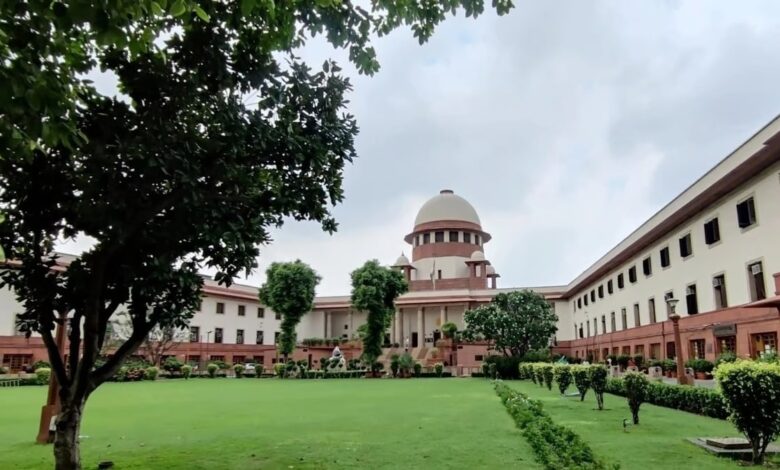
The Supreme Court’s position on live-streaming proceedings in cases of national importance has been a prime example of fostering change for larger public interest and access to justice. “Sunlight is the best disinfectant,” the top court had said in 2018 while siding with the transparency that live-streaming would bring.
Former Congress Union Minister and senior advocate Kapil Sibal recently appealed to the Supreme Court to cease live-streaming of proceedings of the Chief Justice of India’s court. The senior lawyer cited concerns about his reputation during the ongoing case in the rape-murder of a junior doctor at the RG Kar Medical Hospital before the top court. “What happens if you livestream such matters which have emotive implications….? If something is said by your lordships…? We have a reputation!”, Sibal submitted.
‘I Was Not Laughing’
On August 20, the CJI taking suo motu cognisance of the grave offence that created shockwaves throughout India on the intervening night of August 9 was debatable, especially since the case had already been transferred to the CBI by Calcutta High Court in light of mishandling by West Bengal’s machinery. However, the larger systemic issues concerning the workplace safety of women, especially in the healthcare sector, were magnified and taken into account by the court and dealt with by formulating a national task force.
During the hearing, objections were raised by Sibal, representing the West Bengal government about the “reputational hazards” of live streaming over the institution as well. “We have 50 years of reputation, it is at stake… why to say that that I was laughing…I was not laughing..this is not fair,” said Sibal.
The CJI, while taking note of his concerns about the safety of lawyers who represent clients across the spectrum, emphasised that openness in the judiciary is crucial. The CJI’s monumental contribution to access to justice through live streaming of cases that are nationally important cannot be ignored.
The stance of Sibal, who is the President of the Supreme Court Bar Association (SCBA), is controversial, especially since when he took charge as the president of the lawyers’ body via election, he had vowed to keep politics out of the courtroom. His current position opposing live streaming to safeguard his reputation, built over decades, hints at self-preservation.
The Swapnil Tripathi Judgment
The Supreme Court’s journey toward live streaming began in September 2018 with the landmark Swapnil Tripathi judgment. The court ruled that cases of national and constitutional significance be live-streamed to promote transparency, public legal literacy, and engagement with the judicial process. Advocates of live streaming argued that it brings the public closer to the workings of the judiciary, reducing dependence on second-hand interpretations from court reporters and lawyers.
Lest we forget, in 2018, the Supreme Court had said, “Sunlight is the best disinfectant”, while allowing live-streaming of proceedings in the Supreme Court, for larger public interest and to promote transparency. Senior advocate Indira Jaising had petitioned the court to start live streaming and the Attorney General of India at the time had agreed with the court’s position.
When Access To Justice Is Politicised
Sibal’s earlier public statements, in which he expressed frustration with the judiciary, further fuel the current debate – is the issue of access to justice being politicised? The senior lawyer’s stand on the effect of “institutional reputation” due to live streaming may be interpreted as shifting goalposts while risking and undermining public trust in the legal system, especially when his own reputation is in question. As the President-elect of the Highest Court’s lawyer’s body, this may eventually be harmful to the independence of the bar, with its long-standing advocacy in the space of transparency and judicial integrity.
Sibal’s opposition to live streaming and for submission of sealed cover documents before the top court in the instant controversial case seems especially contradictory when viewed from his earlier positions. As recently as 2019, during the P. Chidambaram case, Sibal had vocally opposed the submission of evidence in sealed covers, arguing that such practices undermined the right to a fair trial. He asserted that transparency was a cornerstone of natural justice, stating, “The court has said that the opposing side has the right to know what is alleged against them in the documents in a sealed cover.”
India Jaising’s Petition
Notably, it was senior advocate Indira Jaising who first petitioned the Supreme Court for live streaming of proceedings, citing the public’s right to information under Article 19(1)(a) of the Constitution. Her petition argued that live-streaming would reduce misinformation, foster trust in the judiciary, and ensure that the public – especially those unable to attend court in person – could stay informed about cases that affect them.
Yet, in the face of Sibal’s attempt to limit public access to the judiciary through his opposition to live streaming, no opposition was put forth, even though an appeal was made to the SCBA President on social media against the CJI and Prime Minister meeting for a religious event. Given her earlier advocacy for live streaming, her quiet response to Sibal’s position has drawn attention.
It could be said that political and personal interests may be clouding the once-unanimous push for openness. Everything is politics, but is politics everything? Is it even in the sunlight?
Disclaimer: These are the personal opinions of the authors




